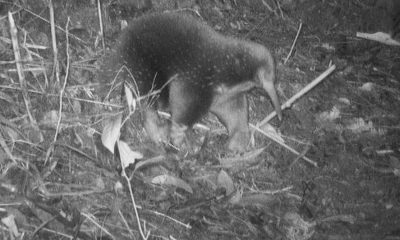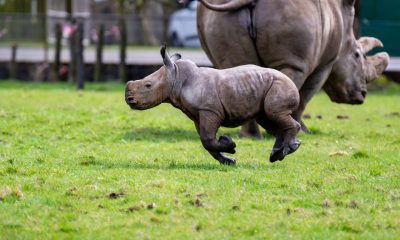By Pol Allingham via SWNS
Despite being protected from hunting, humans are the leading cause of death for Californian cougars, according to a new study.
People primarily kill the cougars, also known as mountain lions, in car crashes and livestock conflicts.
This comes despite California passing a law protecting the lions from hunting in 1990.
University of Nebraska-Lincoln (UNL) found it is more likely the beasts will be killed near rural developments and less likely in areas with a high proportion of voters favoring pro-environmental initiatives.
Scientists consequently claimed human mindset and levels of “tolerance” might drive the mountain lions’ mortality risk.
Moreover, a long-standing assumption has been that a “doomed surplus” of wild animals will die of natural causes if humans don’t kill them first.
But the study revealed if more humans kill Californian mountain lions, additional numbers die by natural causes.
UNL corralled scientists from multiple universities, government agencies and private organizations to track nearly 600 mountain lions across the entire golden state.
Co-lead author Professor John Benson, University of Nebraska-Lincoln, said: “Population dynamics of large carnivores operate at large scales, making it critical for researchers to collaborate across broad geographic regions that go beyond typical study areas to better understand population processes and connectivity.
“Ecologists believe that human tolerance is critical to conserving large carnivores in landscapes shared with humans.
“However, it is rare that data on tolerance are included in the models we use to understand mortality risk.
“Of course, we acknowledge that voting records on environmental issues are not a direct reflection of this tolerance, but the strength of this result suggests that human mindset may be an important driver of mortality risk for mountain lions.”
via GIPHY
Scientists appealed for further research into how mountain lion populations interact between regions.
Local extinction of small mountain lion populations in the central coast and southern Californian prompted discussions over listing the species “threatened” under the Californian Endangered Species Act in those regions.
Meanwhile, large, healthy populations of mountain lions occupy swathes of natural habitat on undeveloped public land in northern California and Sierra Nevada’s mountains.
The animals travel long distances to breed and face human-made dangers on the way.
Roads and development could prevent newcomer mountain lions from arriving and increasing numbers in at-risk populations.
Kyle Dougherty, a UNL Ph.D. student and co-lead author, said: “Young male mountain lions often move and breed long distances from where they were born, and are largely responsible for maintaining gene flow between populations.
“Immigration of mountain lions from adjacent or more distant populations can also help compensate for high rates of human-caused mortality and maintain population persistence through a process known as ‘source-sink’ dynamics.”
Carnivore biologist Dr. Justin Dellinger, another co-author in the study published in Proceedings of the National Academy of Sciences, said research should re-orient towards young male lions tasked with moving between populations.
He said: “We tend to focus on survival of adult females because of their strong influence on growth or decline of individual populations.
“However, young males are the ones that move between populations meaning that their mortality, combined with barriers to movement imposed by roads and development, could limit the utility of seemingly healthy populations to act as ‘sources’ of new animals and genes for small, isolated populations.”

 Parenting7 days ago
Parenting7 days ago
 Lifestyle6 days ago
Lifestyle6 days ago
 Good News2 days ago
Good News2 days ago
 Broadcast1 week ago
Broadcast1 week ago
 Health3 days ago
Health3 days ago
 Broadcast1 week ago
Broadcast1 week ago
 Money1 week ago
Money1 week ago
 Wildlife2 days ago
Wildlife2 days ago






















